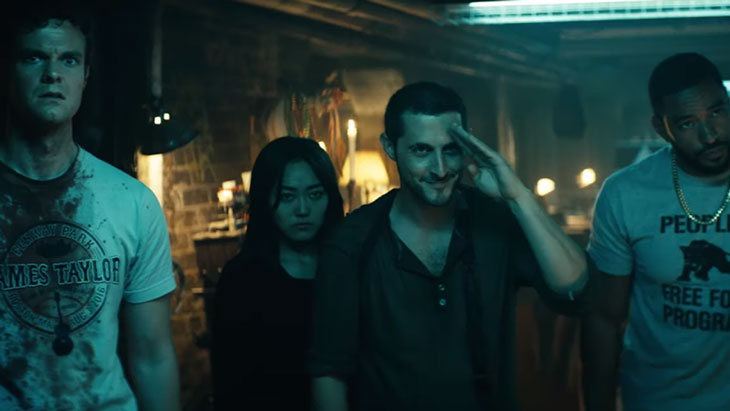
So, I have not done one of these in a while. I usually just talk about what I’m watching with Dead and leave it at that. But then I noticed that he and I had been doing week to week discussions of Season 2 of Amazon’s hit show The Boys, based on the Garth Ennis comic of the same name. We did this for several reasons, but the main reason was one key growing emotion we both felt: disappointment. Season 2 of The Boys is not a bad season of television, but whereas season 1 left me anticipating season 2, I feel like I can wait a bit for season 3. I am not going to do a plot point breakdown of these seasons. Suffice to say, I think you should watch The Boys, but be aware that I believe season 2 is a marked step down from season 1, which I thought was great television.
SPOILERS FOR SEASON 1 and SEASON 2 of THE BOYS
Quick plot recap for the uninitiated. In the universe of The Boys, superheroes are everywhere, saving people and stopping crimes as part of their employment with US corporation Vought. The best of the best of these superheroes are The Seven, an obvious Justice League knockoff, led by Homelander (Antony Starr), a jingoistic man-child version of Superman. However, all the glitz and glamor hides a culture of super heroic abuse, manipulation, and violence covered up by Vought. Our main characters, The Boys, are a group of characters whose lives have been in some way ruined by Vought and superheroes. The leader, Billy Butcher (Karl Urban) has a hate-on for Homelander after he raped his wife and made her go missing. Hughie Campbell (Jack Quaid) was once a superhero devotee before A-Train (Jessie T. Usher), the Flash stand-in for the Seven, literally runs through his girlfriend and Vought does nothing to punish A-train. Mother’s Milk (Laz Alonso) is a no-nonsense prison guard and all around badass whose father died fighting against superhero abuses. Frenchie (Tomer Capon) is a gangster with a penchant for absurd and creative weaponry that hates superheroes for reasons both exterior and interior and develops an interesting friendship with Kimiko (Karen Fukuhara) a girl who was kidnapped and experimented on with compound V, the secret substance that allows Vought to create superheroes. They are sometimes aided by Annie January, a.k.a. Starlight (Erin Moriarty), the newest member of the Seven who has a complicated relationship with Hughie and is given countless reasons to hate and fear The Seven throughout the series.
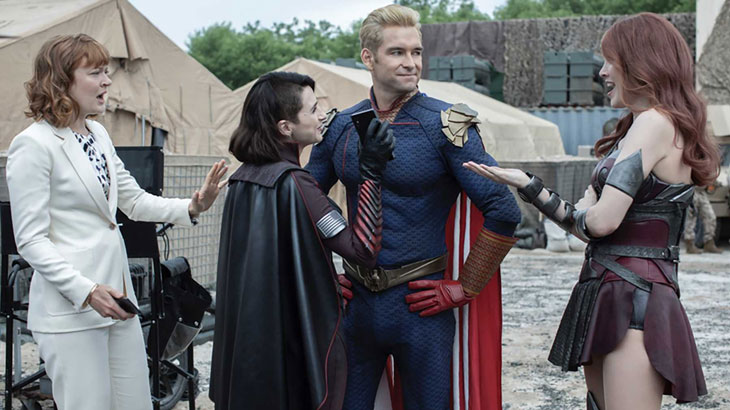
Let me get the positives out of the way first. As always, Antony Starr as Homelander is a revelation. He is wonderfully entertaining as a dark, twisted, broken man who also happens to be the most powerful being on earth. They keep giving him more depth and nuance while not letting you forget how much of a monster he is. The way he manipulates the other members of The Seven while also constantly making sure they remember how dangerous he is can be fun and intimidating. At the same time, this season keeps trying (with some success) to give him softer elements. Not in an attempt to make you like him, but to let you understand how truly broken he is.
A lot of the stuff with The Seven is good. This season goes into the internal power dynamics of The Seven and within Vought since all superheroes are basically corporate mascots. Members are kicked out or put into awkward positions where their personal lives are used for profit or media manipulation. On the one hand, you have Queen Maeve whose love life is manipulated and held hostage by Homelander for PR, forcing her to figure out what she is willing to accept and what she has to push back on after years of just accepting the abuse and violence. At the other end of the spectrum, A-Train has gotten use to the money and lifestyle of being one of the biggest superheroes in the world, but when he is forced to give it up because his speed is causing him heart damage, he has to figure out if life in The Seven is better than what his life was like before. As he has said, “You don’t mess with the money.”
The other big positive both for the plot and The Seven as characters is a newly introduced character: Stormfront (Aya Cash). She is set up as a media savvy hip superhero who gets how to manipulate the public and bring about anger and discontent to stir up support for her causes. She is brought in by the other new antagonist these season, Vought CEO Stan Edgar (Giancarlo Esposito), to liven up support for The Seven and the expansion of superheroes in the US after it is revealed that Vought experimented on babies. The actress is good, and what is done with her works even if it is somewhat different from the comics version of the character. There are some key details about her that are revealed throughout the season, but basically, by the end, it is clear why she is a bad guy.
Now, while I said I wouldn’t do a plot breakdown, I will say that the major overarching plot this season, where Vought, compound V, and superheroes are politicized, is a good plot. There is lots of room for exploring themes of media manipulation, radicalizing ideas, and the breakdown of the goal of consensus in America’s polarized politics. Plus, creator Eric Kripke and his writers leave plenty of room for demonizing alt-right instigators, incels, and other violent unhinged groups who for some reason have had an expanded voice in American politics for the last 4-5 years. All of that is great. Here is the problem: the first half of season 2 does not know what to focus on.
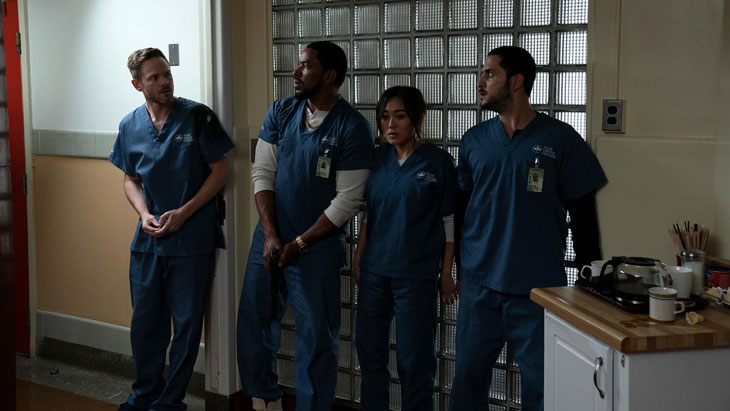
A key growing concern that Dead and I had as we were watching season 2 is that episodes 1-4 set up a whole bunch of stuff and there was not a lot of follow through on any of it. The character perspective kept shifting. Important plot threads were brought up and then dropped. Key character moments were not given the weight they needed to properly impact the audience. The deputy director of the CIA is assassinated by a hidden superhero in episode 1 and no one bothers to bring that up again after it happens. In fact, a key plot twist related to that comes up at the end of the season finale, but my only thought was that there was not enough time devoted to this plot element in the 6 episodes between when it is first introduced and followed up on to justify this twist having any impact. The thing about twists is, yes, you want them to be surprising. However, being surprising is not the same thing as bringing something up, not following up on it for quite a while, and then revealing the twist at the end. That middle portion where you lay groundwork and build up suspense for it is necessary for the reveal to not land with a wet thud, raising more questions than it answers. And you know what would be something you could cut to give you time to focus on these things: EVERYTHING having to do with The Deep!
The Deep and his strange amount of focus might be the single biggest problem in season 2. The actor, Chace Crawford, is trying, and the subplot that they have him in could lead to some compelling stuff, but there are two big problems with this. First, at no point during his subplot is The Deep anything more than a passive actor manipulated and propelled forward by those around him. Second, The Deep is not even in the top 10 of interesting characters with compelling subplots and drama that could use time to build up and develop. Even Lamplighter (Shawn Ashmore), a character who is only in two episodes this season, gets way more to do and is FAR MORE compelling as a tortured burnout superhero than The Deep. Despite this, The Deep’s subplot about him joining a cult and being manipulated by them is the ONLY subplot that is followed through on all season, and to make matters worse, it does not amount to anything. He is basically the same character at the start of season 2 as he is at the finish. Passivity and lack of development are a lethal cocktail for storytelling, leading to boredom and annoyance. So, the fact that so many important plot threads are ignored or left dangling throughout the seasons but this one boring subplot gets a decent amount of screen time every episode is more than a little infuriating.
There is one other big problem with this season. Did you notice I have not mentioned the titular Boys much? This was less of a problem in season 1, but there are two key flaws with The Boys being the main characters in the show. For starters, they are far less interesting. While the Boys do have their moments, most of the compelling character development and drama is given to the Seven, the antagonists of the show. Karl Urban and Jack Quaid keep being given moments to develop and be compelling, but they are never followed up. Mother’s Milk and Frenchie get some backstory, but only Frenchie’s has any impact on character interactions or the plot outside of the moment the backstory is brought up. The most interesting member of the Boys, Kimiko, has a lot of room for drama and character stuff this season, but the show keeps sidelining her for dozens of other subplots, so her character stuff often ends up feeling like it resolves too quickly and too easily.
Another key problem that was suggested last season but highlighted this season is how ineffectual the Boys are as main characters. Every lead they get, win they notch, change they cause is handed to them by superheroes. In fact, if it were not for the involvement of several self-serving or mentally tortured members of The Seven, The Boys would have been soundly defeated and killed multiple times and never accomplished anything. I know the whole theme of this world is that normal people don’t matter as much as superheroes, but if you intend to make normal people the main characters, you can’t keep making them incapable of succeeding at anything or giving all of the interesting drama to their antagonists. Like I said before, Lamplighter is more of a hero in two episodes than The Boys are all season.
As I said at the beginning, I still like this season, but the sheen is starting to come off. The compelling premise is hurt by lack of consistent writing and a focused plot structure. The Boys are in no way effective as main characters and most of the best drama and character moments go to the antagonists, flawed, evil or otherwise. I don’t know what Kripke was thinking while he was show running this season, but the overwhelming feeling I get while watching this is that the show dithered for its first half with no idea what to focus on and then rushed to complete everything it set up in the second half. If you liked The Boys season 1, you will probably still like season 2, but it is definitely a huge drop off in quality.

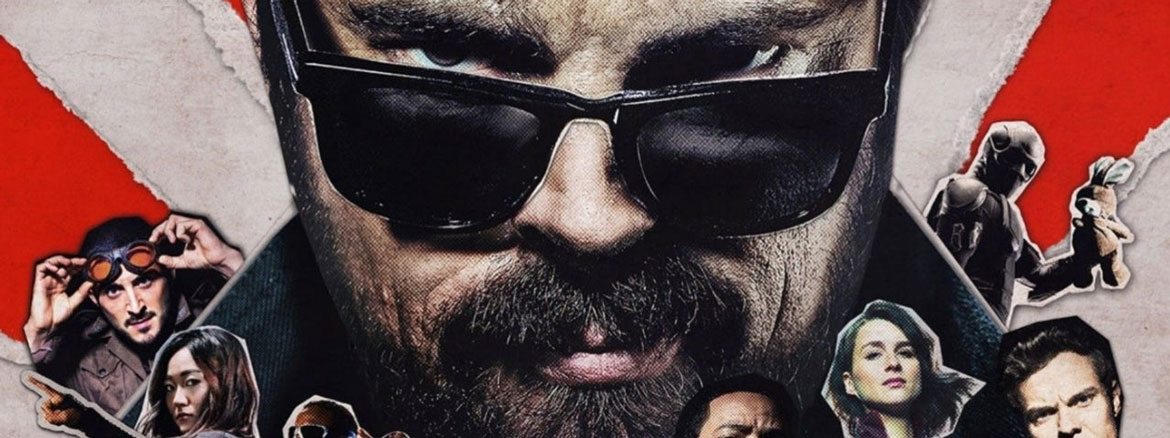
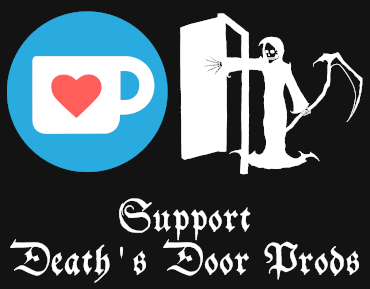

Add comment